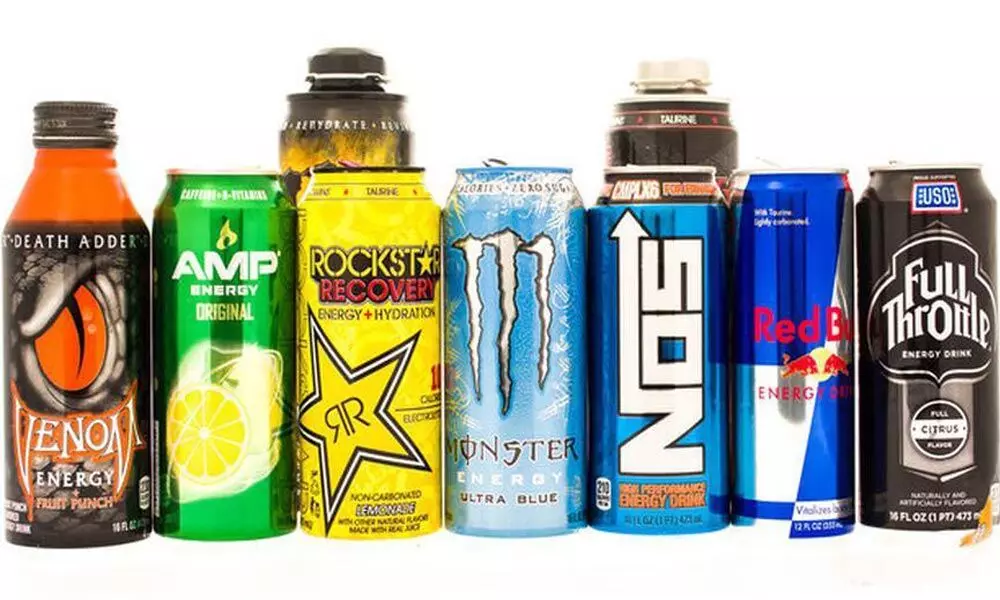Energy drink makers relying on organic ingredients to boost topline
Energy drinks may have beneficial effects on physical performance, but these products also have possible detrimental health consequences
image for illustrative purpose

Since reduced sugar varieties have experienced more success, manufacturers can also look to expand those options and emphasize their lower sugar content and healthier ingredients. Functionally, a reduction in sugar, and natural and organic ingredients are also bolstering the energy drinks category
Energy drinks have become a super hit all over the world. In the beginning, they were meant for menial laborers and the working class. That's how Red bull, the leading energy drink company in the world, started earning its initial sales. Later they expanded to the sports world. Energy drink came to be newly associated with dangerous sports and thrilling activities.
The global sales for energy drinks in 2014 had been around $49 billion which reached to $61 billion in 2020. With an annual growth rate of 5 percent since 2013, this booming industry no longer caters only to a select few, but to almost everyone who is exhausted in life. Now that is a brilliant selling point, and energy drink companies are making every effort to cash it.
Energy drinks are beverages that have ingredients like caffeine, vitamins and herbs. They claim to give you more energy and make you feel alert.
Consumption of energy drinks has been increasing dramatically in the last two decades, particularly amongst adolescents and young adults. Energy drinks are aggressively marketed with the claim that these products give an energy boost to improve physical and cognitive performance. However, studies supporting these claims are limited. In fact, several adverse health effects have been related to energy drink; this has raised the question of whether these beverages are safe. It is concluded that although energy drinks may have beneficial effects on physical performance, these products also have possible detrimental health consequences. Marketing of energy drinks should be limited or forbidden until independent research confirms their safety, particularly among adolescents.
High growth rates of energy drinks have slowed since 2016 because younger consumers, teenagers, millennials and students are leading the general shift toward healthier, more natural products particularly as access to and awareness of health effects escalates in the food and beverage industries.
As a result, regular energy drinks have seen the biggest drop-off in off-trade volume growth. Reduced-sugar energy drinks have fared a little better. Opportunity exists to capture the healthier consumer. For instance, athletes have started to reach for energy drinks as a more fundamental alternative to sports drinks.
Rather than just ensuring healthy hydration, energy drinks can provide them with pre-workout stamina and reinvigorate them post-workout. Another opportunity exists among reduced-sugar energy drinks. Since reduced sugar varieties have experienced more success, manufacturers can also look to expand those options and emphasize their lower sugar content and healthier ingredients.
Functionality, a reduction in sugar, and natural and organic ingredients also are bolstering the energy drinks category. Using tea or matcha as a source of caffeine, as well as including fruit juices or coconut water as a more natural source of sugar and vitamins is leading to energy drinks being considered also for their functional benefits rather than just an energy boost.
The reason that young people choose energy drinks is hard to pinpoint. Advertising and brand loyalty play a large part in the desire to consume these products and young people report that they see these products being advertised on television, on the internet, through sports sponsorships, video games and in shops, despite pledges from advertisers to reduce this. Taste and the need for an 'energy boost' may also be a reason to consume energy drinks. Parental consumption seems to also be a driver for adolescent use. While there are several energy drinks in the market today, finding something that helps you boost your energy without any downsides is very important. Since most energy drinks are loaded with sugar, regularly consuming it can lead to several health issues. Thankfully, the market also has several energy drinks that are sugar-free and are safe for consumption.
When choosing your next energy drink, make sure that you check the additional ingredients in them. Consider buying energy drinks that include several beneficial ingredients so that your health is also given a boost along with your energy levels.
Both the regular and low-calorie versions of Monster Energy drink are a good source of four out of the eight B vitamins. The B vitamins work to get energy from the food you eat, and as water-soluble vitamins, they're not stored in your body and you need a regular supply to meet your daily needs. Children, adolescents, pregnant or breastfeeding women should avoid consuming energy drinks. If you choose to use energy drinks, talk to your doctor if you are taking medication or other supplements. Do not mix energy drinks with alcohol.

